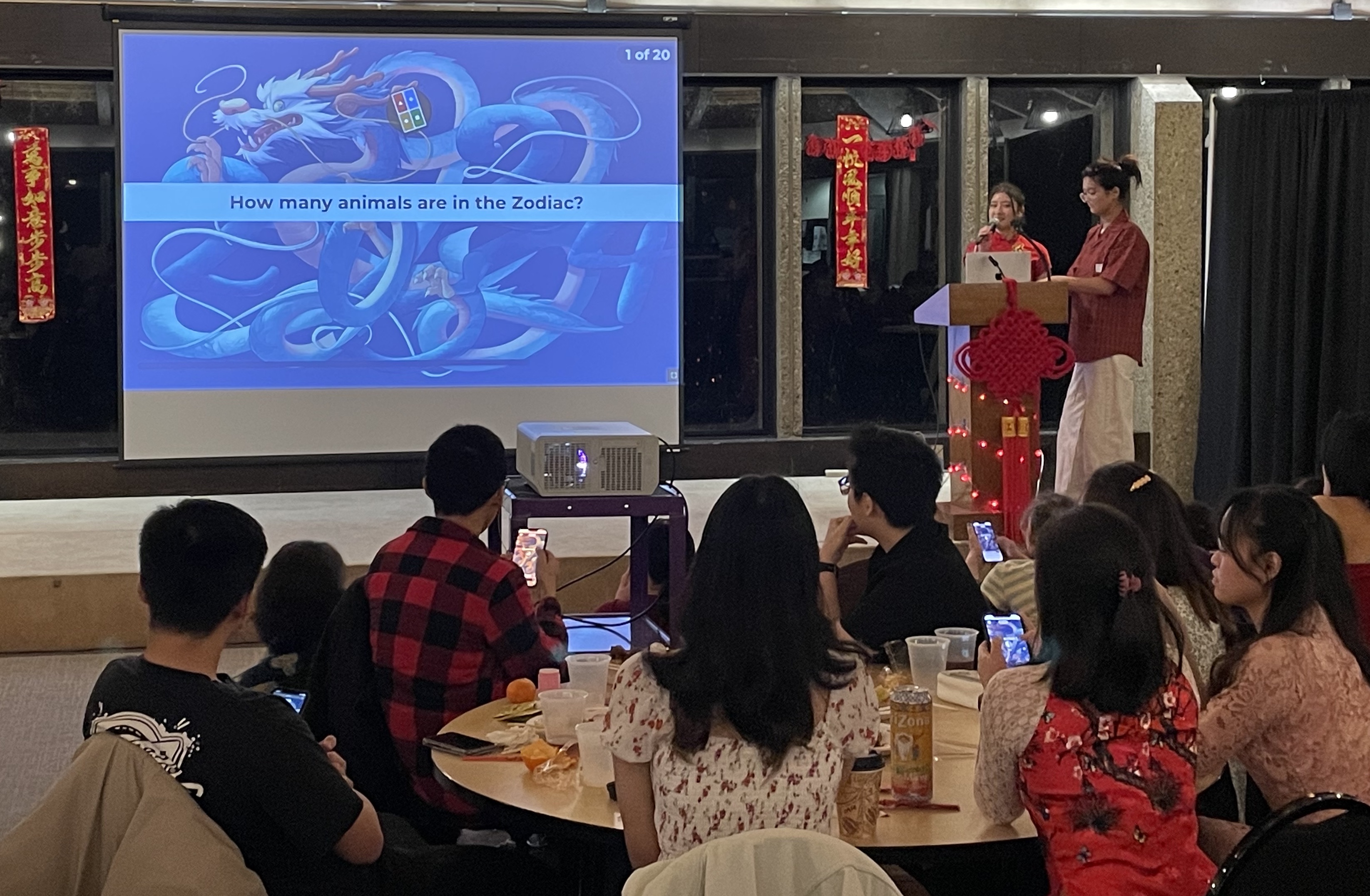Dear members of the Kenyon community,

Last weekend, billions across the world and hundreds here in Gambier took part in Lunar New Year festivities, celebrating the arrival of spring and the beginning of the lunar calendar. It is the Year of the Dragon — and while the Chinese zodiac was not a tradition in my home, I can imagine and appreciate how a cycle that repeats every 12 years creates valuable points of connection between different generations and different lived experiences.
Drawing a throughline between past and present is at the heart of so many of our traditions, and essential for meaningful progress. As part of Black History Month, members of the Kenyon community will have the opportunity to transcribe the letters of abolitionist and orator Frederick Douglass — quite literally preserving the wisdom of our forebears. Our campus will participate in an ambitious global transcription project co-sponsored by the Library of Congress on Feb. 14, Douglass’ chosen birthday (as a former enslaved man, his actual birth date was unknown). Douglass Day is just one of several campus celebrations centering Black voices this month.
In an altogether different but no less powerful conversation with the past, Kenyon staff and faculty will join fellow members of the Knox County community in a very special production of Henrik Ibsen’s “An Enemy of the People” this spring. Adapted and directed by Bryan Doerries ’98, a dramatic reading of the 19th century play will serve as a foundation for discussion of contemporary public health issues. Doerries is the co-founder of Theater of War Productions, and he has spent years crafting and guiding town hall-style discussions to help audiences and communities grapple with trauma — racism, war, sexual violence, substance abuse and more.
A first reading of the play took place last week at the Knox Memorial Theater in Mount Vernon, and I am honored to have been invited to join the cast when the production returns for two more performances in April. I admittedly worry that my knowledge of public health will not be matched by my talents on the stage, but I am eager to participate in this community event. A collaboration with the Public Library of Mount Vernon and Knox County, the project aims to engage audiences with a mix of experiences and perspectives. It promises to be the start of an important, and I hope ongoing, conversation about our shared public health challenges.
As I look around our residential campus, I can’t help but think that we are in an ideal setting for discourse in its many forms. It’s hard to imagine another time in our lives when any of us will be in a place so well suited to — and welcoming of — an open exchange of ideas and face-to-face conversations about important, even challenging topics. We are surrounded by faculty and many staff who have dedicated themselves to understanding complicated issues and who can guide informed, vigorous conversation about them.
Getting a community talking in a way that is productive and honest can be challenging. Fortunately, we have a number of structured opportunities to flex those muscles coming this semester. Programs will cover how to build bridges during times of conflict, practice responsible media consumption, and navigate civil discourse in the context of current events. The first of these, scheduled for Common Hour next Tuesday, will explore how to develop an informed view of an issue when it seems everyone is quick to pick a side.
With election season upon us, the Center for the Study of American Democracy is working hard to engage a range of perspectives as it hosts forums, debates and discussions that raise awareness of both local and national issues. The robust turnout and warm reception provided last week to Pulitzer Prize-winning journalist David Leonhardt suggests the semester is off to a promising start.
Watch for details about these programs and others. Together with the thoughtful interactions we have every day, they will help lay the foundation for what I hope will become the Year of Dialogue.
I can see there is a yearning on campus for respectful discourse, constructive conversation and deeper understanding, and we are determined to meet it with a host of relevant programming. There is power in this — especially as we wrestle with complex times and the heightened feelings that come with them. It’s not always going to be easy and it’s not always going to be comfortable, but it should always be our way. I look forward to pursuing it together with you.
Warmly,
Julie Kornfeld
President